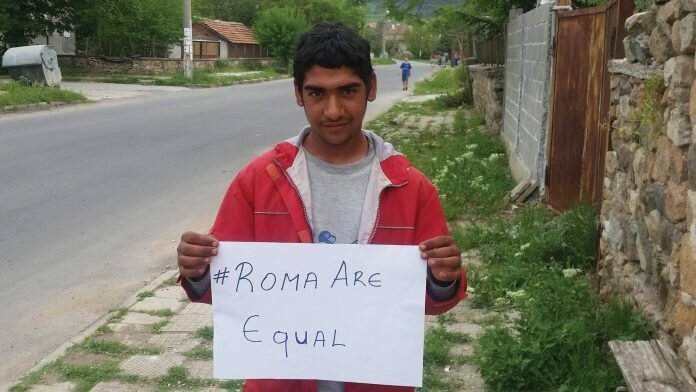
Chairperson of the jury for the Raoul Wallenberg Prize, Rolf Ring, explores the vital work of the European Roma Rights Centre and how it is furthering Wallenberg’s legacy.
In 1944, Swedish diplomat Raoul Wallenberg used his status to save thousands of Jewish and other people at risk in Budapest, Hungary, from the Holocaust; in 1945, Wallenberg was arrested by the Soviet forces. Recognising his sacrifices to humanitarian action, the Council of Europe, at the initiative of the Swedish Government and Hungarian Parliament, established the Raoul Wallenberg Prize in 2012.
The Raoul Wallenberg Prize prize is awarded every two years to recognise outstanding humanitarian achievements by an individual, a group of individuals, or an organisation, and the awardee receives €10,000.
The 2018 recipient of the Raoul Wallenberg Prize — the European Roma Rights Centre (ERRC) — is an international Roma-led organisation which works to combat anti-Romani racism and human rights abuses of Roma people, through the means of strategic litigation, research and policy development, advocacy and human rights education. The Council of Europe uses the term “Roma and Travellers” to encompass the wide diversity of groups, including:
- Roma;
- Sinti/manush;
- Calé;
- Kaale;
- Romanichals;
- Boyash/Rudari;
- Persons who identify as Gypsies;
- Balkan Egyptians (Egyptians ad Ashkali); and
- Eastern groups (Dom, Lom and Abdal).
Within Europe, Roma people represent the largest ethnic minority with some 10-12 million of Roma living in Europe, including estimated six million in the EU. Practically everywhere Roma people are victims of prejudice and social exclusion. The Council of Europe, the continent’s largest human rights organisation brings together 47 member states and seeks to protect rights of everyone, irrespective of race, language, national or social background. The work with Roma people’s rights is an important part of its efforts.
Inspired by the humanitarian action of Wallenberg, the Raoul Wallenberg Institute is an organisation which combines evidence-based human rights research with direct engagement to bring about human rights change across the world. Government Europa Quarterly spoke to Rolf Ring, deputy director of the Raoul Wallenberg Institute and chairperson of the prize’s jury, about the importance of the Raoul Wallenberg Prize in contemporary society, and the vital work of the ERRC.
What is the significance of a prize such as the Raoul Wallenberg and its symbolism of challenging humanitarian concerns such as racism, human rights abuses and discrimination?
It’s a prize that gives attention and recognition to individuals, groups of individuals or organisations which have been working within the field of human rights and humanitarian action. Furthering on this, it also operates in recognition to the work done by Raoul Wallenberg in Budapest, Hungary, at the end of the Second World War. Especially within today’s society, the shrinking democratic space worldwide is evident, but I also think that the prize is a good way to express the gratitude of the work of such organisations.
What kind of elements of best practice does the prize look for in its awardee?
According to the regulations of the prize, the jury has a very broad mandate. Although, it should be awarded to someone who has been active in the field of humanitarian work, as well as the defence and promotion of human rights. We have also articulated that we would like to have an element whereby the recipient has not been doing their advocacy within their ordinary actions of duty, therefore there should be some smaller additional elements.
In the instance where an officer working within an international organisation might have done a very positive thing within his role, those actions are not really prioritised. We have also emphasised that there should be an additional element of personal risk, as that is what Mr Wallenberg took on in his lead in Budapest. Those are some of the considerations involved in the judging process.
The ERRC challenges those issues targeted towards Roma people. What differentiates their work from other nominees who were lobbying for humanitarian justice?
The ERRC is especially known for working through the means of domestic and international litigation, as well as bringing cases to court — both in domestic and international courts – including the European Court of Human Rights in Strasbourg, France, as well as bringing collective complaints to the European Committee of Social Rights. That is a trademark of their work. On the other hand, they have also been very strategic in the use of social media, the internet, and other public communication channels.
The ERRC is working at multiple angles, but also basing its work upon empirical, evidence-based research, whereby this research is gathered and perhaps pursued not in Strasbourg, but in domestic courts. As a result, that is where such organisations are exposed to an element of risk. Moreover, it’s also significant that the ERRC is a Roma organisation led by Roma people themselves.
How can the prize further the work of the ERRC going forward?
International recognition is always of a help when you are working in various areas, and it might also pave the way for other kinds of financial and moral support. Even though on the Roma issue some steps have been taken in comparison to 20 years ago, it remains a burning, prevalent issue. When we describe Mr Wallenberg, we say that everyone can make a difference and the ERRC is making a difference — both to Roma people individually, but also as a group.
Rolf Ring
Chairperson of the jury
Raoul Wallenberg Prize
Deputy Director
Raoul Wallenberg Institute of Human Rights
https://www.coe.int/en/web/portal/raoul-wallenberg-prize
http://rwi.lu.se/


















